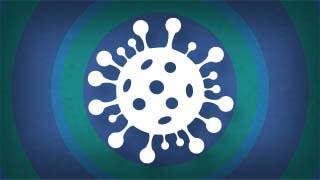Updated on
What did the project achieve?
Since the beginning of the pandemic, there has been significant concern over the effects of infection with SARS-CoV-2, the virus that causes COVID-19, both on the developing fetus and newborn babies. This research investigated whether the virus can be transferred to babies during pregnancy, and how immunity passes from mother to child.
“Our findings should provide reassurance to expectant parents that both COVID-19 vaccination or natural infection during pregnancy result in the transfer of protective antibodies to the developing fetus via the placenta, which may help to protect newborn babies from infection,” says Professor Kirsty Le Doare of St George’s University of London.
The study involved collecting samples from pregnant women who had SARS-CoV-2, both with and without symptoms, and their newborn babies, at hospitals in England during the height of the pandemic. The researchers performed laboratory tests to determine whether women had protective antibodies against the virus in their bloodstream – and if these were passed to their baby via the placenta or during breastfeeding.
“Almost one in four mothers who had not knowingly been infected tested positive for antibodies against SARS-CoV-2 at delivery, suggesting they had encountered the virus without even realising it,” says Dr Sarah Sturrock, a PhD Fellow in the team. “Over 85% of newborn babies whose mothers had antibodies also had these in their bloodstream – with almost three out of four of these babies remaining positive six weeks later.”
The transfer of antibodies from mother to baby during pregnancy provides passive immunity, which is critical in protecting newborn babies against infections. This process is known to occur with other infectious diseases, such as influenza or tetanus, where maternal vaccination can boost the levels of protective antibodies in the baby’s bloodstream after birth.
“We found that vaccination and infection during pregnancy led to high antibody levels in mothers, particularly in those who had been both vaccinated and also infected naturally with the virus,” says Professor Le Doare. “Some of these protective antibodies are passed from mother to child via the placenta, providing a degree of passive immunity to the newborn baby.”
The researchers also found no evidence of transmission of the virus from mother to child, either during pregnancy or through breastfeeding, among the study participants. They have worked with UK Health Security Agency (UKHSA) to update guidance on the transmission of COVID-19 and the effect of vaccination or infection in pregnant women on babies.
This research was completed on
How are children’s lives affected now?
More than 700,000 babies are born in the UK each year.1 While certain bacterial or viral infections during pregnancy or soon after birth can cause harm for women and their babies, the potential risks of SARS-CoV-2 are so far unknown.
“Understandably, the COVID-19 pandemic has raised major concerns for pregnant women and their healthcare teams,” says Professor Le Doare.
Current evidence suggests that pregnant women are no more likely to catch COVID-19 than other healthy adults and that most of those who do, have either mild symptoms or no symptoms at all. However, a small number of pregnant women do become seriously ill with the virus and this risk may be greater during the last three months of pregnancy. But there are still many outstanding questions – such as whether the virus or protective antibodies are passed from the mother to her baby.
“Gaining a better understanding about how this infection affects pregnant women and their babies will help to inform their monitoring and care – both during and after pregnancy,” says Professor Le Doare.
How could this research help?
“We aim to establish how many pregnant women have been infected with the virus – and if their antibodies are passed to their babies, possibly providing some degree of immunity,” says Professor Le Doare.
The periCOVID study will screen pregnant women at 10 hospitals in England to identify those with SARS-CoV-2 infection, regardless of whether they have any symptoms or not – as well as including others who test positive for the virus elsewhere in the country.
“We will carry out laboratory tests on various bodily fluids and tissue to find out how many pregnant women have SARS-CoV-2 antibodies in their bloodstream – and whether or not they pass these to their baby via the placenta or during breastfeeding,” says Professor Le Doare.
The researchers will also explore the risk of the infection passing from mother to baby during pregnancy, delivery or breastfeeding by looking for live virus in samples.
We hope that our findings will help to reassure pregnant and breastfeeding women about how to safely care for their babies. It will also help inform future decision-making about vaccinating pregnant women to help protect them and their babies from infection.
References
- Office for National Statistics, Vital statistics in the UK: births, deaths and marriages https://www.ons.gov.uk/peoplepopulationandcommunity/populationandmigration/populationestimates/datasets/vitalstatisticspopulationandhealthreferencetables [website accessed 4th February 2021]
Research table
Project details
| Project Leader | Professor Kirsty Le Doare, BA(Hons) MBBS MSc (Oxon) PhD FRCPCH |
| Location | Paediatric Infectious Research Group Institute for Infection and Immunity St George’s University of London |
| Project Team |
Professor Paul Heath, FRCPCH
Professor Asma Khalil, MD PhD FRCOG Professor Shamez Ladhani, MD PhD FRCPCH Professor Nick Andrews, PhD Dr Sarah Sturrock, MBBS BSc |
| Other Locations |
Fetal Medicine Unit, Department of Obstetrics and Gynaecology, St George’s University Hospitals NHS Foundation Trust
Vaccine Preventable Diseases Centre for Infections and Statistics Unit, Public Health England, London |
| Grant Awarded | |
| Grant Amount | £199,995 |
| Start Date | |
| End Date | |
| Duration | 18 months |
| Grant Code (GN number) | GN2908 |

